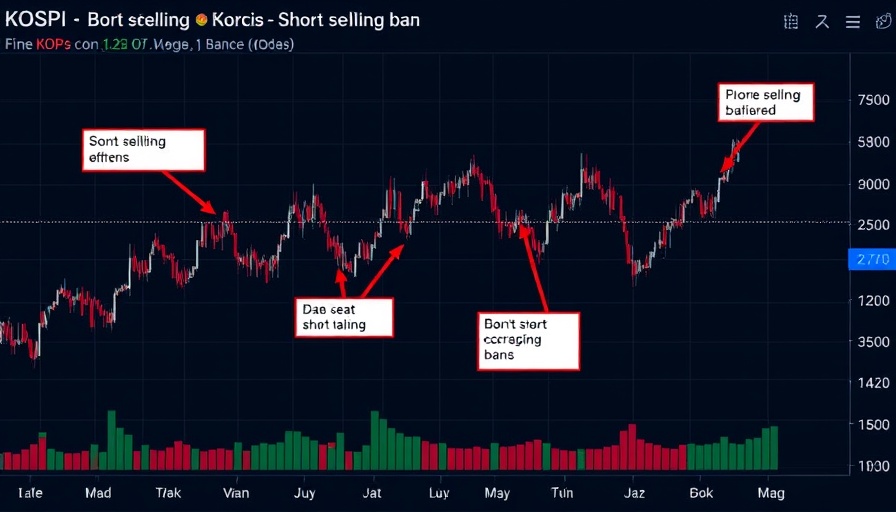
Korean Stocks Experience Volatility as Short-Selling Ban Lifts
As South Korea opens its market on Monday, stocks are reacting negatively to the lifting of a months-long short-selling ban that was implemented to stabilize the market during turbulent times caused by the ongoing pandemic. The market seems to be bracing itself for a period of volatility, as traders and investors navigate the implications of renewed short-selling activity.
Understanding Short Selling: The Risks and Rewards
Short selling is a trading strategy where investors borrow shares and sell them, expecting to buy them back at a lower price. While this can be a profitable strategy for seasoned investors, it comes with significant risks. In South Korea, the ban on short selling was enacted to protect vulnerable stocks from speculative attack which had surged following the global financial crisis. This recent ban lift is sparking debate among financial analysts about the need for robust risk management strategies amidst market fluctuations.
Market Reactions and Predictions for Investors
With Korean stocks facing uncertainty, what does this mean for local and global investors? Analysts predict increased fluctuations in stock performances, urging investors to reassess their investment strategies and portfolios. Understanding these movements is crucial for effective portfolio diversification and maximizing wealth management. In efforts to navigate this challenging landscape, maintaining a focus on long-term growth and comprehensive wealth planning will be vital.
The Broader Economic Implications
The lifting of the short-selling ban may have broader economic implications beyond just the stock market. For instance, it can affect investor sentiment and consumer confidence, vital components for economic recovery. This is particularly important for regions heavily reliant on foreign investment. The balance between risk and opportunity will dictate future movements, and investors should consider how inflation protection and financial independence strategies factor into their decision-making.
Strategies for Wealth Preservation During Market Fluctuations
In light of current market conditions, here are some strategies that could be beneficial:
- Asset Allocation: Diversifying your investments into different asset classes can mitigate risks and optimize returns.
- Investment Strategy Reevaluation: Regularly revisiting your investment strategy can help align with your long-term goals, ensuring that your approach is adaptable to changing market conditions.
- Consulting a Financial Advisor: Engaging with a professional can provide personalized insights and help make informed decisions in complex situations.
Conclusion: Time to Reassess Your Financial Strategy
As the Korean stock market adjusts to the lifting of the short-selling ban, it is an opportune moment for investors to reassess their financial strategies. In doing so, one can aim for a balanced approach to investment growth while safeguarding against potential risks. Whether through tax-efficient investing, retirement planning, or exploring alternative investments, the goal should remain fostering financial resilience for the future.
For those interested in enhancing their investment strategies amidst these developments, consider reaching out to a financial advisor for tailored advice and strategies designed to achieve your financial objectives.
 Add Row
Add Row  Add
Add 




Write A Comment